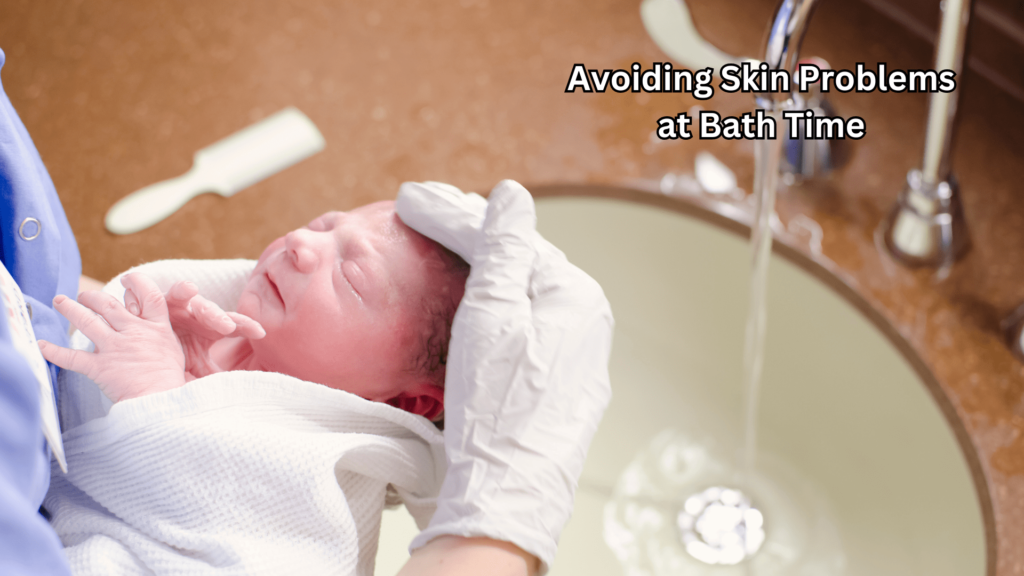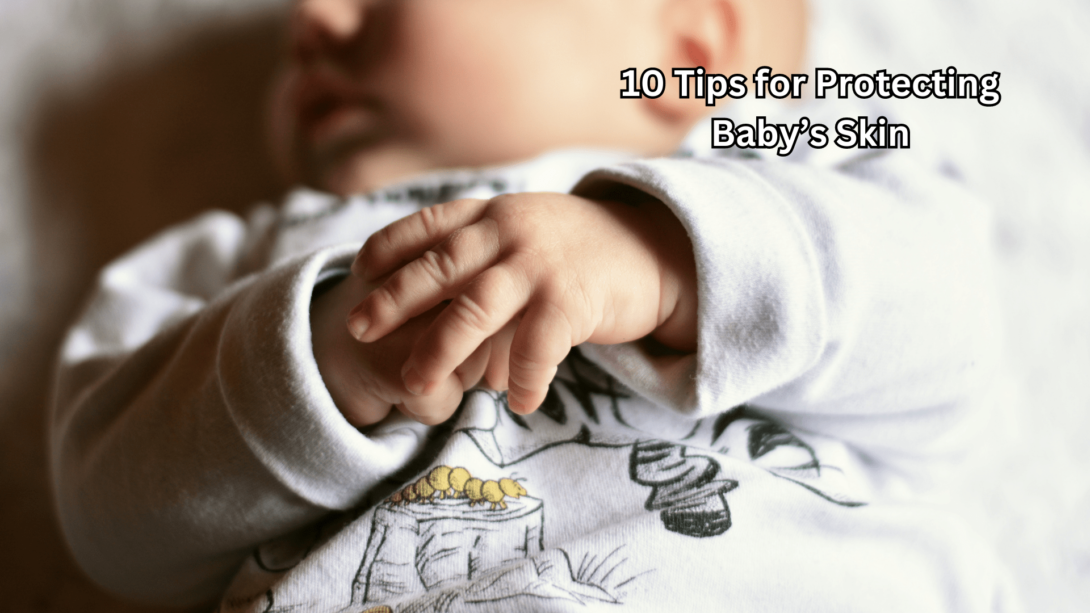Table of Contents
10 Tips for Protecting Baby’s Skin
How often should I bathe my newborn baby?
Bathing your baby is an essential part of their hygiene routine, helping to keep their delicate skin clean and healthy. However, it’s important to strike the right balance between cleanliness and avoiding over-bathing, which can lead to dryness and irritation. For newborns, a warm tap water bath every few days is generally sufficient. Pay attention to your baby’s individual needs and adjust the frequency accordingly.
Expert Tip:
Dr. Emily Collins, a paediatric dermatologist, suggests that while bathing frequency can vary, parents should focus on gentle cleansing and thorough drying of the skin folds to prevent moisture accumulation and potential rashes.
Can a newborn be exposed to the sun?

Protecting your baby from harmful UV rays is crucial. For infants under 6 months old, it’s recommended to keep them out of direct sunlight. When outdoors, dress your baby in light clothing that covers their skin, provide shade with a hat and pram sunshade, and seek shade whenever possible.
Added Insight:
The American Academy of Pediatrics (AAP) advises that if sun exposure is unavoidable, applying a small amount of sunscreen to areas that can’t be covered with clothing, such as the back of the hands, might be considered. However, sunscreen use on babies under 6 months should be limited and done under the guidance of a healthcare professional.
Tell me the most common type of baby rashes?
Expect bumps, spots, and rashes on your baby’s skin. Some common types include heat rash, cradle cap, and diaper rash. Understanding these rashes can help you address them effectively and keep your baby comfortable.
Expert Advice:
Dr. Jennifer Smith, a paediatrician, explains that heat rash is common in newborns due to their underdeveloped sweat glands. To prevent it, avoid overdressing your baby and ensure proper ventilation in their sleeping area.
When to call your baby’s doctor about skin concerns?

It’s important to know when to seek medical advice for your baby’s skin concerns. Persistent redness, irritation, or signs of infection warrant a consultation with a healthcare professional to ensure proper treatment.
Medical Insights:
Dr. Sarah Miller, a neonatologist, emphasizes that parents should not hesitate to contact their baby’s doctor if they notice any unusual changes in the appearance or texture of their baby’s skin. Timely intervention can prevent potential issues from escalating.
How can you protect your baby’s skin from bug bites?
Protecting your baby from bug bites is essential, especially during outdoor activities. Use lightweight clothing that covers the skin, apply baby-safe insect repellent, and keep your baby in well-screened areas whenever possible.
Expert Tip:
Dr. Michael Johnson, a paediatric allergist, suggests using insect repellents with DEET concentrations of 30% or lower for babies over 2 months old. For younger infants, clothing and physical barriers are the primary methods of protection.
What skin care products are safe for babies?
Opt for mild, soap-free cleansers specifically formulated for infants. Avoid products with fragrances or harsh chemicals that can irritate your baby’s sensitive skin. After bathing, pat your baby’s skin dry and consider applying a non-fragranced moisturiser to maintain hydration.
Dermatologist’s View:
Dr. Rachel Adams highlights that ingredients like parabens and sulfates are best avoided in baby skincare products. Look for products with natural, hypoallergenic ingredients to minimise the risk of skin reactions.0
How to care for your baby’s skin in cold weather?
Cold weather can be harsh on your baby’s skin. Dress your baby in soft, breathable clothing, avoid coarse fabrics, and use a gentle moisturiser to prevent dryness and discomfort. Additionally, maintain a comfortable indoor temperature to keep your baby warm.
Winter Skincare Tips:
Dr. Laura Williams, a paediatrician, advises using a humidifier in your baby’s room to combat dry indoor air during winter months. This can help prevent skin dryness and congestion.
Keep your baby out of the sun
Protecting your baby from the sun’s harmful UV rays is vital. For babies under 6 months, avoid direct sunlight exposure. Dress them in protective clothing, use a hat and sunshade, and seek shade to reduce UV exposure.
Parenting Wisdom:
Jane Thompson, a mother of three, shares that using wide-brimmed hats and lightweight, long-sleeved clothing helped her keep her infants safe from the sun during family outings. Planning outdoor activities during early morning or late afternoon hours also proved effective.
Avoiding Skin Problems at Bath Time

Bath time is a great opportunity to bond with your baby while ensuring their skin stays healthy. Use mild, baby-friendly cleansers, and avoid scrubbing vigorously. Gently pat your baby dry and apply a suitable moisturiser to lock in moisture.
How to clean your baby’s clothes?
Choose a gentle, hypoallergenic detergent to wash your baby’s clothes. Rinse them thoroughly to remove any detergent residue. Avoid using fabric softeners or dryer sheets, as they can cause skin irritation.
Expert Insights from Other Sources
- Caring for the Cord Stump: According to WebMD, gently cleaning the cord stump with warm water and mild soap can promote healing and reduce infection risk. Allow the stump to air-dry and keep the diaper folded below the stump to expose it to air.
- Choosing Baby Clothing: The Mayo Clinic recommends layering your baby in light, breathable clothing to regulate body temperature. Remember the “one more layer than you” guideline to prevent overheating.
- Nurturing Through Massage: Parenting magazine suggests using baby massage not only for bonding but also to promote circulation and maintain skin health. Use baby-safe oils and gentle techniques to massage your baby’s skin.
Conclusion
Prioritizing your newborn baby’s skincare is essential for their overall well-being and comfort. By following these essential tips, you can establish a gentle and effective skincare routine that promotes healthy skin development. From proper bathing practices to protecting against UV rays, these guidelines will help you create a nurturing environment for your little one’s delicate skin. Remember, each baby is unique, so be attentive to their individual needs and consult a healthcare professional if you have any concerns about your baby’s skin health. With proper care, you can provide your baby with the foundation for a lifetime of healthy skin.


